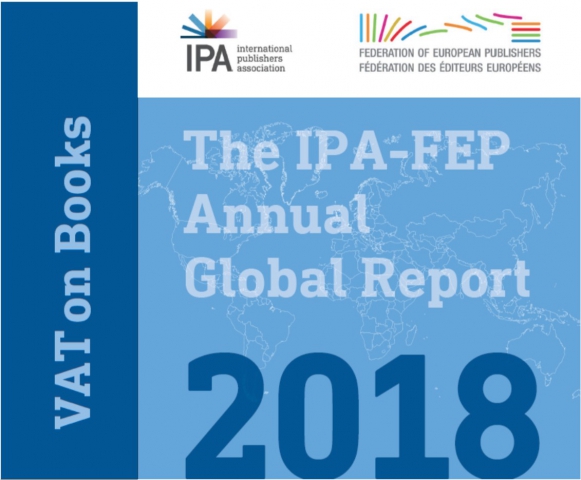For a number of years, the International Publishers Association (IPA) and the Federation of European Publishers (FEP) have questioned our members and conducted desk research into as many countries as possible about the rate of Value Added Tax (VAT) applied to printed books and e-books. For the purposes of this report, we refer only to VAT, although it has various names worldwide, notably ‘Goods & Services Tax’ (GST) and ‘sales tax’.
This year, the IPA and FEP received answers from 134 countries (up by 32 in 2016) to the following questions:
- Standard VAT rate
- Rate of VAT applied to print books
- Rate of VAT applied to e-books
You can read the full report here but below are some highlights:
- The consumer pays no VAT on printed books in 53 countries (40%) a total which includes a handful of countries where books are VAT exempt.
- 68 countries (51%) applied the standard national rate of VAT to e-books.
- The consumer pays no VAT on e-books in 37 countries (27%).
- 37 countries (27% of the total) zero-rate both book formats.
José Borghino noted: A zero rate of VAT on all titles boosts consumption of literature generally and of textbooks in the classroom and at home. Books deliver knowledge, but the book market is highly price-sensitive. Any increase in cost, however small, can inflict serious damage to sales and therefore future investment in more innovative and effective titles. In order to support the knowledge economy, to encourage reading and to promote the benefits of lifelong education, the IPA recommends zero-rate VAT for all books, no matter what their format or how they are accessed.
Commenting on the recent law changes in the EU, the FEP’s Enrico Turrin said: It marks the end of the unjustified fiscal discrimination between books in different formats, acknowledging the equal value of all books and the technological transformation of the sector. We now hope that as many EU Member States as possible take the opportunity and apply the new Directive – and as of April 2019 signs are encouraging, with several countries having taken advantage of the new Directive, and several more planning to do so between now and early 2020.
Stephen Lotinga, Chief Executive of the Publishers Association, said: Without quick and decisive action from the government, the UK’s digital policy risks falling behind its European neighbours. Zero-rating digital publications is a change which will not only put money into the pocket of consumers but also benefit authors, publishers and the wider UK economy. Reading is a social good, regardless of whether we read pixels or ink. That’s why we’re calling on the UK government to stick to its principles of not taxing knowledge by acting urgently to axe the reading tax.

